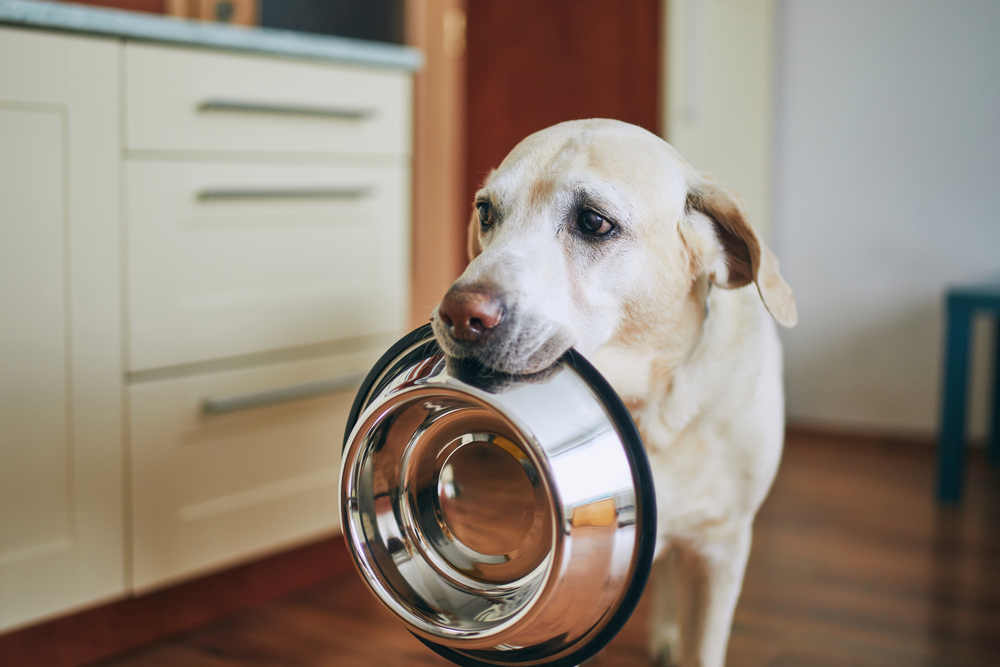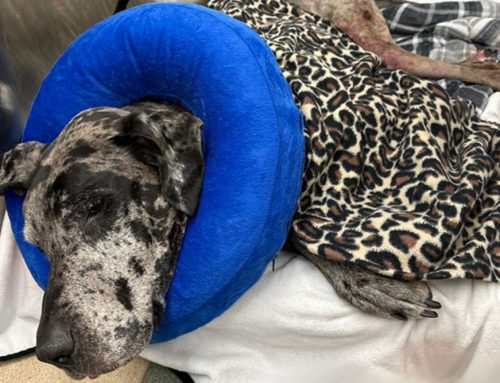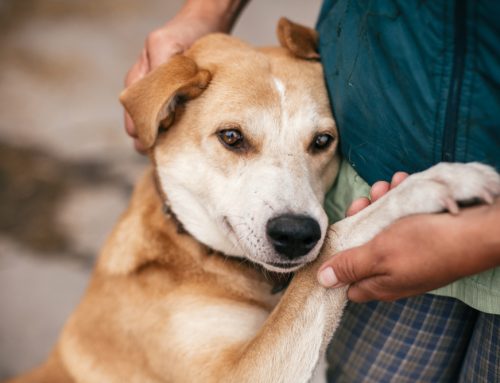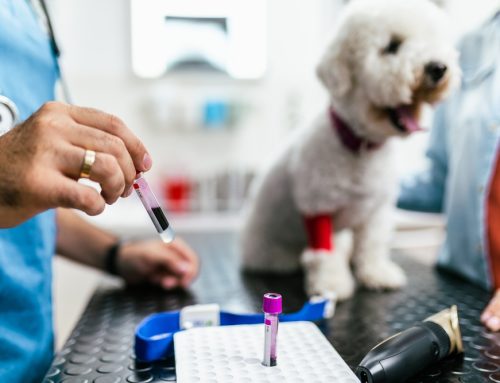Dogs can vomit for numerous reasons, and while dealing with dog vomit is never fun, some instances are more concerning than others. Our Marcy Veterinary Clinic team has cleaned up our share of dog vomit, and we are thoroughly qualified to provide this comprehensive vomiting handbook to prepare you for the next time your furry pal has tummy troubles.
Distinguish between vomiting and regurgitation in dogs
Vomiting and regurgitation are two separate conditions, and you must be able to distinguish between them to determine your dog’s problem. Specifics include:
- Vomit — Vomiting occurs when your dog forcefully ejects contents from their stomach and upper intestine, and is typically preceded by drooling and retching. Vomit’s contents can range from partially digested food to yellow bile and often smell unpleasant and sour.
- Regurgitation — Regurgitation is a passive expulsion of food from the esophagus that usually contains undigested food. Regurgitation can occur simply because your dog eats too fast, or may be caused by a foreign body, esophageal stricture or tumor, hiatal hernia, vascular ring anomaly, megaesophagus, or esophageal dysmotility disorder. Regurgitated material typically smells like regular food.
Reasons dogs vomit
Dogs vomit for numerous reasons, including:
- Diet change — Any sudden change in your dog’s diet can lead to gastrointestinal (GI) upset.
- Garbage gut — Your dog may vomit after eating table scraps, garbage, or spoiled food.
- Toxin ingestion — Many pet toxins cause vomiting when ingested. If you know or suspect your pet ingested a toxin, immediately contact Marcy Veterinary Clinic or Animal Poison Control for expert advice on the best care for your pet.
- Foreign body ingestion — A foreign body, such as a sock or small toy, that your dog ingests can create a GI obstruction and cause vomiting or unproductive retching.
- Bloat — Bloat occurs when gas distends the stomach, causing abdominal pain. In some cases, the stomach fills with gas and twists. Vomiting or unproductive retching are common signs of bloat, which is a veterinary emergency.
- Allergies — Some dogs are allergic to ingredients in their food, most commonly proteins, such as chicken, beef, and dairy. The most common food allergy sign is itchy skin, but GI signs, including vomiting, can also occur.
- Kidney disease — If your dog’s kidneys are compromised, toxins accumulate in their bloodstream and trigger the brain’s chemoreceptor trigger zone, resulting in nausea and vomiting.
- Infectious disease — Puppies and unvaccinated dogs are at risk for infectious diseases, such as parvovirus and canine distemper, that cause vomiting.
- Pancreatitis — Pancreatitis is a serious, potentially life-threatening condition in which the pancreas digests itself. Signs include lethargy, abdominal pain, persistent vomiting, and collapse.
- Heatstroke — When your dog’s body temperature rises to dangerous levels in response to excessive environmental temperatures (e.g., when left in an unattended vehicle), numerous body systems, including the GI tract, are affected, and vomiting may result.
- Motion sickness — Some dogs get sick when riding in a car and may drool excessively or vomit.
Signs your vomiting dog needs veterinary care
If your dog vomits once but otherwise seems happy and bright, they likely don’t need veterinary care. However, they require medical attention when:
- They exhibit additional signs, such as fever, lethargy, diarrhea, inappetence, abdominal distention, or pain
- Their vomit contains blood that may appear as a reddish or pinkish tinge, or look like dark brown or black coffee granules
- They are a puppy or senior dog, whose GI conditions can be more serious and quickly lead to a life-threatening situation
- They have a preexisting condition that may be causing the vomiting
- They are on medication that may cause vomiting
- They are losing weight, because of chronic vomiting
- They vomit multiple times in a few hours
- They vomit for several days in a row
Veterinary care for vomiting dogs
When our team evaluates your dog for vomiting, we run diagnostics, such as blood work and X-rays, to determine the cause, and will devise a treatment plan that depends on the underlying condition causing the vomiting. Potential treatments include:
- Fluid therapy — Vomiting can lead to dehydration, and your dog may need intravenous fluids to correct fluid and electrolyte deficits.
- Anti-nausea medication — We may prescribe anti-nausea medications to help alleviate your dog’s signs.
- Surgery — If your dog is vomiting because of bloat or a foreign body, they may need surgical intervention.
At-home care for vomiting dogs

If your dog vomits once but seems otherwise OK, you can treat them at home and monitor their progress. Tips include:
- Remove your dog’s food and water to let their stomach rest.
- If your dog has no repeat episodes for one to two hours, offer them a small amount of water.
- If your dog can keep the water for several hours, offer them a small amount of bland food (e.g., boiled chicken or rice).
- Gradually return your dog to their normal diet over two to three days.
If your dog vomits and you know from these guidelines that they need veterinary care, contact our Marcy Veterinary Clinic team. We will determine the underlying cause of vomiting, and start treatment to alleviate their GI upset.








Leave A Comment